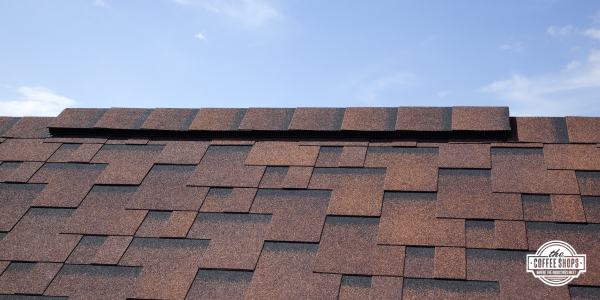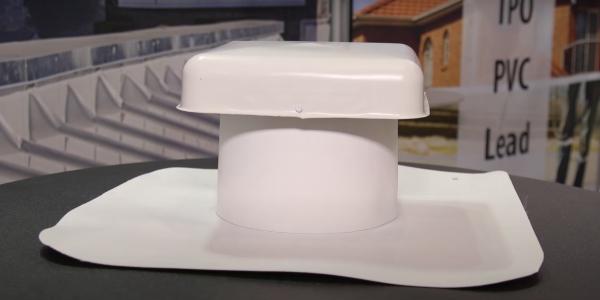UP TO THE MINUTE
5 crucial questions to ask about ventilation

By Emma Peterson.
Learn about what you should be asking and considering when constructing a residential air ventilation system.
One of the crucial parts of having a roofing project go smoothly is making sure all parties, especially the architects, homebuilders and roofing contractors, are on the same page, especially when working with critical components to the home’s integrity like ventilation. To do this, Gibraltar Industries Building Accessories Division has identified five key questions each of these parties should be asking. In this episode of their podcast called Airing it Out With AirVent (a digital extension of their Attic Ventilation: Ask the Expert seminars), Paul Scelsi, Air Vent’s marketing communications manager, spoke about these questions with Edgar Arellano, the owner of The Roofing Experience in Ogden, Utah. Paul laid out the five questions: “What's the roof's shape, what's the attic size, what's the airflow capacity of the vent I'm considering, how many of those vents will be needed and what will it all look like?” Edgar then shared how these are relevant to his work in the field.
1 - What's the roof's shape?
This is the first and primary step to determining what type of air ventilation system is needed. Edgar explained, “It all depends on the line of the roof, how it was built and how it's going to be efficient. The roof shape is very important when it comes to deciding if I'm going to be using turtle backs, ridge vents, turbines or any other you know like a solar powered mechanical fan or wire mechanical fan.
2 - What's the attic size?
After determining the roof shape, it’s time to make sure you have a clear picture of what’s going on underneath it. Edgar shared some of his thought process, saying, “The attic size and the actual roof size are totally different things. What I've realized is attics are about 10% to 15% less than the actual roof slope slopes.” To bridge this difference, he uses the AirVent app which has a calculator feature that allows him to input the roof information and get an estimated attic size. Using that information, he knows “what and how much of the certain ventilation needed to install on that roof system.”
3 - What's the airflow capacity of the vent I'm considering?
Step three is all about the details of the air ventilation system that you want to install. The primary note Edgar had was to listen to the homeowner. He explained, “A lot of it I determined by talking to the homeowner and picking up their information like, ‘It'll be 72 degrees in my living room but over here it's 85 degrees.’ So that kind of gives me an idea of what they might need.” To generate a list of options to choose from, he uses the AirVent app again. He explained, “The AirVent app tells you the options you can choose depending on the square footage that you did on the attic. I do like to use that.”
4 - How many of those vents will be needed?
This is another question that the AirVent app can help you get started with, as Paul explained, “The AirVent calculator in the app will show you how many feet of ridge vent it would need or how many box vents would be needed, etc.” This is something that Edgar uses as a reference point, but he does that in tandem with manufacturing recommendations. He explained why he does this, saying, “I'm wanting to determine the amount and quantity of the vent that will help give a roof a longevity instead of just helping with just airflow. We want it to all work as a system.”
5 - What will it all look like?
At first glance, this might seem less important than the other steps, but, as Edgar pointed out, the homeowner will have invested thousands of dollars into the project, and it would be frustrating if they hated how their home looked at the end. He shared a bit about what he does to try and make the roof look clean and cohesive, saying, “If I'm using a black shingle, I’ll try to use darker fans or vents so that it blends in the system. Then, when the homeowner pulls up to their house, they're paying attention to the whole entire roof not just parts of it that look like an eyesore.”
Listen to the full podcast or check out the entire series to learn more about these five key questions and ventilation system installations.
Learn more about Gibraltar Building Accessories in their Coffee Shop Directory or visit www.gibraltarbuildingproducts.com.

About Emma
Emma Peterson is a writer at The Coffee Shops and AskARoofer™. Raised in the dreary and fantastical Pacific Northwest, she graduated in 2024 from Pacific University in Oregon with a degree in creative writing and minors in graphic design and Chinese language. Between overthinking everything a little bit, including this bio, she enjoys watching movies with friends, attending concerts and trying to cook new recipes.



















Comments
Leave a Reply
Have an account? Login to leave a comment!
Sign In